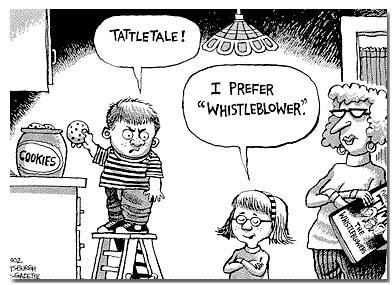— Jessica Gutierrez Alm, Attorney
Last month, the federal Defend Trade Secrets Act (DTSA) was signed into law. The DTSA provides remedies for trade secrets misappropriation, including a new federal cause of action, under which private companies can sue for trade secrets misappropriation. The DTSA allows a trade secret owner to seek actual damages, injunctive relief, restitution, and in some cases, exemplary damages and attorneys’ fees. The Act also provides for an ex parte seizure order for seizing property containing trade secrets in some instances of misappropriation
Additionally, the DTSA lays out substantial protections for whistleblowers who disclose trade secrets in order to report a violation of law, and requires employers to notify employees of these protections.
Whistleblower Protections
The DTSA provides that individuals “shall not be held criminally or civilly liable under any Federal or State trade secret law for the disclosure of a trade secret” where the disclosure is made:
- in confidence to a Federal, State, or local government official, or to an attorney, and solely for the purpose of reporting or investigating a suspected violation of law; or
- in a complaint or other filing in a lawsuit or other proceeding, and filed under seal.
This language provides for immunity from both civil and criminal liability under any Federal or State law, but only where the information was disclosed confidentially to certain individuals or under seal. Thus, the DTSA does not provide protections for whistleblowers who go to the media or the general public, for example.
This seems to strike an important balance. Whistleblowers can fill an important role in some instances, particularly where the public interest is a factor. Unfortunately, the act of reporting an employer’s violation can sometimes necessitate disclosure of the employer’s trade secrets or other confidential information. Once a trade secret is publicly disclosed, it is no longer protectable as a trade secret. As a result, whistleblowing may lead employers to retaliate with misappropriation claims against the whistleblower. It appears that the DTSA is thus aimed at striking a balance by encouraging whistleblowers with broad protections, while maintaining confidentiality of the employers’ information.
Employers to Give Notice
The DTSA also imposes an affirmative duty on employers, requiring that employers provide notice of the immunity provision to employees and contractors. The notice must be set forth in “any contract or agreement with an employee that governs the use of a trade secret or other confidential information.” The notice requirement seems to apply to all employers, as the Act does not define a small business or similar exception.
If an employer fails to provide the required notice, the penalty does not seem particularly harsh. Employers who do not provide the notice can still sue under the DTSA, but their available damages may be limited. Specifically, if an employer fails to provide the immunity notice to an employee or contractor, and later sues that employee or contractor under the DTSA for misappropriation of trade secrets, the employer will not be able to collect exemplary damages or attorneys’ fees. Exemplary damages and attorneys’ fees are otherwise available under the DTSA only in situations of willful or malicious misappropriation, where the employer proves not only misappropriation but also an element of willfulness or malice. Actual damages and other remedies, including injunctive relief and property seizure, are still available for employers who fail to provide notice.
The DTSA went into effect on May 11, 2016. Employers who wish to have full access to all of the available damages provisions under the DTSA may want to consider amending employee and contractor agreements to include the new notice provision.

